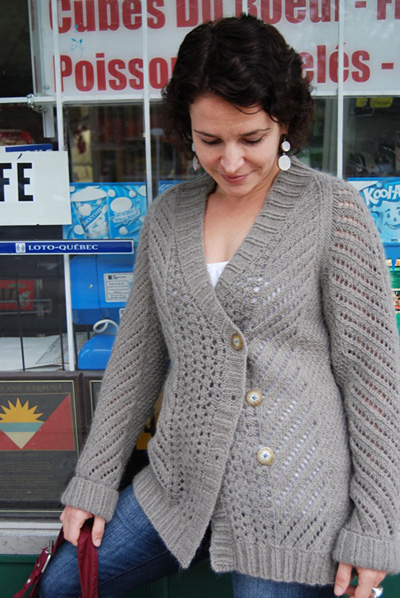“Let’s Start at the Very Beginning…”
If you’ve been keeping up with my newsletter articles, you know that we have finally come into the Year of the Steward. The session and I decided to devote the entirety of 2009 to a deepened understanding of stewardship. Each month, or in most cases, a pair of months will be devoted to a way that we are stewards. Had I thought of it sooner, I’d have put in the January newsletter the breakdown of what each topic would be and when. That will come next month, along with a brief description of what the current month’s topic will be.
This month though starts us off with the most basic and fundamental stewardship principles I think, that we are called to be stewards of the gospel. I recognize that stewardship has gotten something of a bad rep in most churches, since just about the only time that word is used is in conjunction with asking for money. Turns out, (and you’ll know this if you’ve read your newsletters) that stewardship actually has absolutely nothing to do with giving anything. For those of you into etymology, that is, the origins of words, ‘steward’ comes from the old English words that meant ‘sty warden.’ That’s right, the pig keeper. Now don’t start thinking this is makes it a dirty word, oh no, this was one of the most responsible positions on the farm. Pigs were valuable sources of meat, manure, and they were easy to keep since they could live on scraps. They were very important. Being the sty warden was very important. But notice that the warden isn’t the one giving anything. He is responsible for the pigs that have been handed over to his care. His master has trusted him with this important position and allowed him to take over the management of the pig keeping.
Over the next year we will examine a number of the things that God has given over to our care and what our responsibilities towards them are. We are stewards—care takers, not just givers. God has already given us everything we need, everything that we have. We are entrusted with its care. Sometimes being responsible caretakers does mean giving away part of what we have. But as we will see, different things are cared for in different ways. Sharing our gifts, no matter what form they take, is often part of this responsibility, but not always. We are caring for what we have already been given. We have the responsibility for the care, management, and utilization of things that do not belong to us. Do recognize that being called to be stewards implies a level of trust and partnership on the part of the owner. That’s right, God trusts us enough to call us into stewardship of all that we have, all that we can see. Kinda makes you wonder what God must have been thinking, yeah?
As I said, this month we are looking at our responsibilities as stewards of the gospel. Being stewards of the gospel is the prologue and presupposition of all of our other practices as God’s stewards. This is where it begins. If we aren’t being faithful stewards of the gospel, we can’t be faithful stewards of any of God’s other gifts to us. It is from the gospel itself that we learn of our call to stewardship, that we learn of God’s generosity to us, learn of the responsibilities of our role. Being a steward of the gospel can be equated with being a disciple, of course. Discipleship is following Christ’s teaching and God’s will for our lives, which, of course, we discern from the gospel. It is also the sharing of the things we learn in the gospel, which is, I think, more of where the stewardship aspect comes in. Discipleship is not only following but sharing. We have been entrusted with the gospel’s message, we care for it by following it and by sharing it with others so they in turn can care for it by following and sharing God’s word.
If I’ve made it this far and you haven’t asked yourself why I’m preaching this sermon on a Sunday when we honor the Lord’s baptism, you’re either not paying attention or you’re very trusting that I’m going in the right direction. And if it’s the latter, so as not to violate that trust, I’ll go ahead and tell you that our call to stewardship begins at the moment of our baptism.
Baptism provides us with our identity, just as it did for Jesus. God’s voice comes to him and declares him God’s beloved son, giving him his identity as such, and it also marks the beginning of his ministry. Our baptisms do the same. They mark us as beloved children of God and it marks the beginning of our ministry as stewards of the Gospel, as disciples, as Christians. This is absolutely crucial to Mark, so much so that we’ve already gotten here within the first eleven verses of his gospel. This is the very first place he takes us, this is what he sees as the beginning of it all. And as Christians, we too see baptism as the beginning. The very start of our lives—at least our lives as they were meant to be led as beloved children of God.
By examining the baptism of Jesus, we can see the perfect example of what our own baptisms are meant to symbolize. The empowering by the Holy Spirit into the ministry of God’s word and as God’s own beloved children. “Jesus did not receive the Spirit in order to enjoy privately its spiritual benefits, but rather in order to pass it on.”[i] This is the beginning. In Mark’s gospel, it is the beginning of Jesus’ ministry, the beginning of his identity as the Son of God, the Messiah. For Mark, there is nothing before this. “In the beginning, when God created the heavens and the earth, there was nothing,” says Genesis. The earth was formless and void and God’s spirit swept over the waters. Yet from that nothing, God created everything. And here in Mark we begin once again with water and nothingness and from that begins Jesus’ ministry on earth. For it is only when the spirit descends that formation and identity begin, for creation, for Jesus, and for us.
When the Spirit moves over us, we begin to take shape. We begin to take shape as Christians, as disciples of Jesus, and as stewards of the gospel. Before that moment, our lives may as well have been formless and void. For it is in that moment that our identity is confirmed, our identity as God’s beloved. Though Presbyterians believe the water to be symbolic, for it is the Spirit that does the actual baptizing, it is easy with the small bowls and fonts used in most churches to lose the element of danger to be found in large bodies of water. One of the theological reasons for immersion is that in going totally under the water, it is symbolic of dying, and coming up from the water is symbolic of rising again to new life. Presbyterians tend more towards the theology of the water being symbolic of washing away our sins, thus the amount is not significant, especially as I said, since the Spirit is the one doing the actual work.
If that’s all the theology lesson you want for today, let’s have Mark bring us back to the earthy side of baptism. We have John wearing scratchy camel hair clothes, eating bugs, wading into a muddy, mucky river to dunk the poor converts into its cold and murky depths. These images remind us of how human our baptisms really are. Babies crying, drops of cold water running into their eyes, parents tripping over the name of their own child, adults more concerned with not getting their hair wet than with receiving the Holy Spirit, ministers forgetting the words. Yet as human as the ritual is, the Holy Spirit still comes. And of course if there is any doubt that this is truly what God wanted and intended, just remember John’s words that Jesus is indeed “the Word made flesh.” This is indeed the beginning of God creating something new and wonderful in Jesus Christ. At our own baptisms we are made new and wonderful through water and the spirit.
Our call to stewardship is just one aspect of our baptisms of course, but as I said before, being called as stewards of the gospel is the prologue and presupposition to all the rest of our acts as God’s stewards. At the time I needed to have the bulletin ready for printing, I didn’t have a catchy title for it, but as I was working on it later, I decided I’d have given it a title inspired by one of my favorite movie musicals, calling it, “Let’s Start at the Very Beginning,
And so it is here that we start our year of the steward as well. With a remembrance of our own baptisms, our own call to be God’s stewards, God’s caretakers of the Word, a responsibility bestowed upon us with trust, for some of us, even from our infancy. Through water and the Holy Spirit we are entrusted with God’s word, to care for it, use it wisely, and share it with others. It is truly a great beginning, to the year and to our lives and to our calling. What a very good place to start.
[i] Bartlett,


